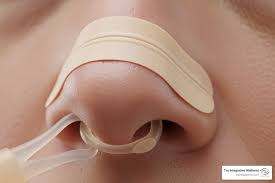How to Cope with Allergies During Allergy Season
Allergies are reactions caused by the immune system when it mistakenly identifies a harmless substance like pollen, dust, or certain foods as a threat. These substances, called allergens, trigger symptoms such as sneezing, itching, watery eyes, or even more serious reactions in some people. For those with allergies, the body releases chemicals like histamine when exposed to allergens, causing inflammation and discomfort.
During allergy season, which typically occurs in spring, summer, and early fall, airborne allergens like tree, grass, and weed pollen are especially common. This leads to a rise in seasonal allergies, also known as hay fever, affecting millions of people. Common symptoms include nasal congestion, a runny nose, and itchy eyes. To reduce symptoms, many people use medications, limit time outdoors when pollen counts are high, and keep windows closed to prevent allergens from entering their homes.
Track Allergy Levels
Pollen and mold counts change daily, so check forecasts before planning outdoor activities. Avoid going outside early in the morning when pollen is highest. Keeping your windows closed helps reduce allergens inside your home. Use air conditioning to keep the air clean and cool.
Use a HEPA filter in your air conditioner or a portable air purifier. These filters trap dust, pollen, and pet dander, improving indoor air quality. Remember to clean or replace filters regularly to maintain their effectiveness. Fresh indoor air can help ease allergy symptoms and improve comfort.
Tips to Reduce Allergy Triggers at Home
Vacuum your floors and furniture at least once a week using a vacuum with a HEPA filter to trap allergens effectively. Wash bedding, rugs, and curtains in hot water every week to remove dust mites and pollen. Keep indoor humidity levels between 30 and 50 percent to prevent mold growth and reduce allergens.
Allergens easily stick to your skin, clothes, and hair, so take a shower and change clothes when you come inside. Wash your hair before bed to avoid transferring pollen to your pillow. Avoid drying clothes outside on high pollen days to reduce exposure. These steps help keep your home and body allergy-free.
Use Allergy Medications Wisely
Take antihistamines to relieve sneezing, itchy eyes, and runny noses caused by seasonal allergies or other triggers. Decongestants can help with a stuffy nose, but should only be used for short periods to avoid side effects. Nasal sprays are another option that can reduce inflammation and provide quick relief from allergy symptoms. Always follow the label instructions carefully and consult a doctor if you have any concerns or questions about the medication.
Using allergy medications properly can significantly improve your comfort during allergy season or exposure to allergens. If symptoms persist or worsen, seek medical advice to find the best treatment plan. Your doctor may recommend alternatives or additional therapies based on your specific condition. Proper medication use and medical guidance help manage symptoms safely and effectively.
Take Charge of Seasonal Allergies
You can stay active and enjoy life during allergy season. Identify your triggers and follow a regular prevention plan. Keep your space clean and use helpful tools and medicines. The right steps make each day easier.







